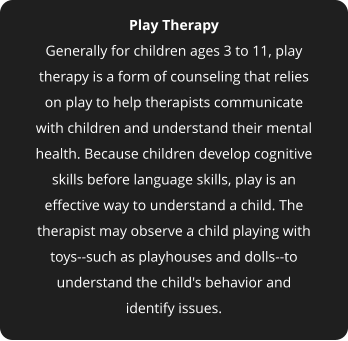ABOUT
Susan OldenKamp
Counselor, LCPC, NCC, MS, Academy of Cognitive Therapy Diplomate and Certified CBT Therapist I am a Licensed Clinical Professional Counselor that works with adults, adolescents and children. I received my master’s degree from Northwest Nazarene University and have counseling experience both in the community and in schools. I help my clients with a wide range of issues including: strengthening and rebuilding relationships both within families and in marriages, depression, anxiety, self worth issues, identity issues, recovering from abuse, and grief and loss. I am the first Certified CBT Therapist and Diplomate of the Academy of Cognitive Therapy in Idaho. I am the owner of the Cognitive Behavioral Therapy Center of Idaho. My office is located off the freeway in downtown Caldwell, allowing easy accessibility from all areas of the Treasure Valley. I enjoy working with a wide variety of ages on differing issues to accommodate most clients' needs. I look forward to meeting you.
CBT Center of
Idaho
WELCOME
Cognitive Behavioral Therapy Center of Idaho Tolstoy said, “Only people who are capable of loving strongly can also suffer great sorrow; but the same necessity of loving serves to counteract their grief and heal them.” Through a relationship built on trust, respect and genuine positive regard we can look at life's situations from many angles in order to gain new perspectives and counteract faulty logic. Together the counseling process becomes successful. Walking through life can be especially difficult for those who have been mistreated within relationships, those who are struggling to find hope after a loss, or those going through a rough time. I wish to be a stop on your journey in life, where you find relief and solace in the counseling relationship and after some healing you can continue on this magnificent road. There is a place to find hope again. What gives your soul the capability to love so deeply also gives it the ability to heal. After being wounded, becoming overwhelmed, or finding life at a standstill, there is hope to begin again and continue living. Cognitive Behavioral Therapy was developed by Aaron Beck, MD and is one of the few forms of psychotherapy that has been scientifically tested and found to be effective in more than 300 clinical trials for many different disorders. CBT is focused on the present and problem-solving. Clients will learn specific skills they can use for the rest of their lives. These skills involve identifying distorted thinking, modifying beliefs, relating to others in different ways, and changing behaviors. CBT affects the way you perceive situations and influences how you feel emotionally. Behavior therapy is a part of CBT and focuses on how you learn and how your behaviors are affected in various situations. Behavior therapy is used to change/modify unwanted behaviors and is also used to treat many kinds of problems and disorders. You can learn more about CBT at the Academy of Cognitive Therapy (ACT) at www.academyofct.org and the Association for Behavioral and Cognitive Therapies (ABCT) at www.aabt.org.
FACTS

You must learn a new way to think before you can
master a new way to be.
- Marianne Williamson -
ADDRESS
CBT Center of Idaho
2900 Cleveland Blvd.
Caldwell, Idaho 83605
CONTACT
(208) 504-8027
NAVIGATION
MODALITY
Individuals Couples Family Group
2
5
Age
Children (6 to 10)
Preteens / Tweens (11 to 13)
Adolescents / Teenagers (14 to 19)
Adults
Elders (65+)
ISSUES
Child or Adolescent
Depression
Family Conflict
Life Coaching
Oppositional Defiance
Pregnancy, Prenatal,
Spirituality
Women's Issues
Communication & Relationship Skills
Life Transitions
Behavioral Issues
Coping Skills
Domestic Violence
Infertility
Obsessive-Compulsive (OCD)
Peer Relationships
Self Esteem
Trauma and PTSD
Anxiety
ADHD Adoption
Chronic Pain
Domestic Abuse
Grief
Marital and Premarital
Parenting
Postpartum
Stress
Personal Growth
Identity Issues
CLIENT FOCUS


PRICES

Psychiatric Diagnostic Evaluation/Initial Session: $180
60 Minute Psychotherapy Session: $150
45 Minute Psychotherapy Session: $110
30 Minute Psychotherapy Session: $90
Family Psychotherapy Session (Without client present): $130
Family Psychotherapy Session (With Client present): $150
60 Minute Crisis Psychotherapy Session: $200
•
Each additional 30 minutes: $80
Group Session: $50
Court Fees: $200/hour with a 2 hour minimum
Written Documentation: $40/15 minutes
Late Cancellation/No Show: $110
If paying entire fee with cash at the time of service (with no insurance) a 20% discount will be given.

NAVIGATION
ADDRESS
CBT Center of Idaho
2900 Cleveland Blvd.
Caldwell, Idaho 83605
CONTACT
(208) 504-8027
Susan OldenKamp
Counselor, LCPC, NCC, MS, Academy of Cognitive Therapy Diplomate and Certified CBT Therapist I am a Licensed Clinical Professional Counselor that works with adults, adolescents and children. I received my master’s degree from Northwest Nazarene University and have counseling experience both in the community and in schools. I help my clients with a wide range of issues including: strengthening and rebuilding relationships both within families and in marriages, depression, anxiety, self worth issues, identity issues, recovering from abuse, and grief and loss. I am the first Certified CBT Therapist and Diplomate of the Academy of Cognitive Therapy in Idaho. I am the owner of the Cognitive Behavioral Therapy Center of Idaho. My office is located off the freeway in downtown Caldwell, allowing easy accessibility from all areas of the Treasure Valley. I enjoy working with a wide variety of ages on differing issues to accommodate most clients' needs. I look forward to meeting you.
CBT Center of Idaho
WELCOME
Cognitive Behavioral Therapy Center of Idaho Tolstoy said, “Only people who are capable of loving strongly can also suffer great sorrow; but the same necessity of loving serves to counteract their grief and heal them.” Through a relationship built on trust, respect and genuine positive regard we can look at life's situations from many angles in order to gain new perspectives and counteract faulty logic. Together the counseling process becomes successful. Walking through life can be especially difficult for those who have been mistreated within relationships, those who are struggling to find hope after a loss, or those going through a rough time. I wish to be a stop on your journey in life, where you find relief and solace in the counseling relationship and after some healing you can continue on this magnificent road. There is a place to find hope again. What gives your soul the capability to love so deeply also gives it the ability to heal. After being wounded, becoming overwhelmed, or finding life at a standstill, there is hope to begin again and continue living. Cognitive Behavioral Therapy was developed by Aaron Beck, MD and is one of the few forms of psychotherapy that has been scientifically tested and found to be effective in more than 300 clinical trials for many different disorders. CBT is focused on the present and problem-solving. Clients will learn specific skills they can use for the rest of their lives. These skills involve identifying distorted thinking, modifying beliefs, relating to others in different ways, and changing behaviors. CBT affects the way you perceive situations and influences how you feel emotionally. Behavior therapy is a part of CBT and focuses on how you learn and how your behaviors are affected in various situations. Behavior therapy is used to change/modify unwanted behaviors and is also used to treat many kinds of problems and disorders. You can learn more about CBT at the Academy of Cognitive Therapy (ACT) at www.academyofct.org and the Association for Behavioral and Cognitive Therapies (ABCT) at www.aabt.org.
You must learn a
new way to think
before you can
master a new way
to be.
- Marianne Williamson -
ABOUT
FACTS
Age
Children (6 to 10)
Preteens / Tweens (11 to 13)
Adolescents / Teenagers (14 to
19)
Adults
Elders (65+)
CLIENT FOCUS
MODALITY
Individuals Couples Family Group
ISSUES
ADHD Adoption
Chronic Pain
Domestic Abuse
Grief
Marital and Premarital
Parenting
Postpartum
Stress
Behavioral Issues
Coping Skills
Domestic Violence
Infertility
Anxiety
Communication &
Relationship Skills
Obsessive-Compulsive (OCD)
Peer Relationships
Self Esteem
Trauma and PTSD
Child or Adolescent
Depression
Family Conflict
Life Coaching
Oppositional Defiance
Pregnancy, Prenatal,
Spirituality
Women's Issues
Personal Growth
Identity Issues
Life Transitions


Psychiatric Diagnostic Evaluation/Initial
Session: $180
60 Minute Psychotherapy Session: $150
45 Minute Psychotherapy Session: $110
30 Minute Psychotherapy Session: $90
Family Psychotherapy Session (Without client
present): $130
Family Psychotherapy Session (With Client
present): $150
60 Minute Crisis Psychotherapy Session: $200
Each additional 30 minutes: $80
Group Session: $50
Written Documentation: $40/15 minutes
Court Fees: $200/hour with a 2 hour minimum
Late Cancellation/No Show: $110
If paying entire fee with cash at the time of
service (with no insurance) a 20% discount will
be given.
PRICES









































